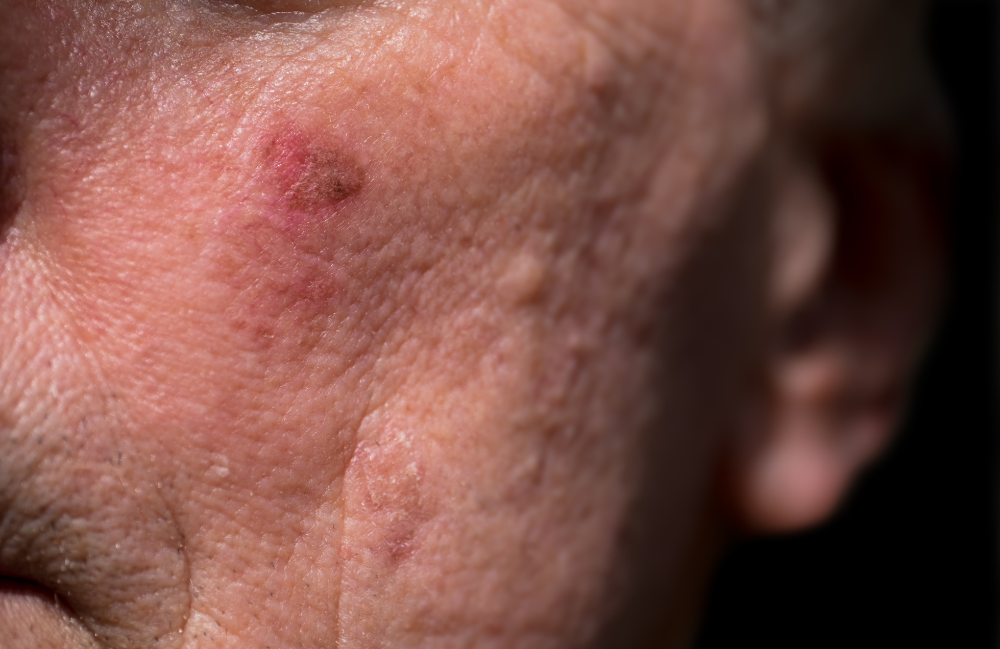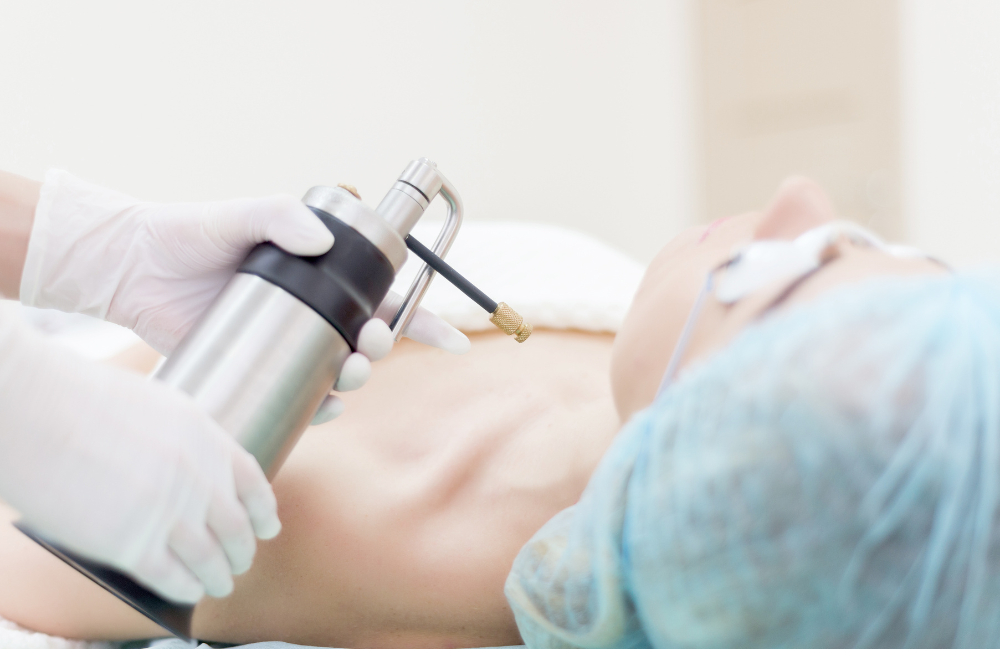
What is Actinic Keratosis?
Actinic keratosis is a common precancerous condition where skin lesions develop due to prolonged UV exposure. While the lesions themselves are not cancerous, they pose a risk of progressing into squamous cell carcinoma, a type of skin cancer. These scaly patches can be tan, pink, or flesh-colored, and they often feel rough or dry.
Causes
The primary cause of actinic keratosis is cumulative exposure to UV radiation from the sun or tanning beds. Over time, UV rays damage the skin cells, leading to the development of these rough patches. Individuals with fair skin, light-colored eyes, and blonde or red hair are more prone to AKs. People with weakened immune systems or those over the age of 40 are also at greater risk.
Symptoms
Symptoms of actinic keratosis can vary, but the most common signs include:
- Rough, scaly patches on sun-exposed areas like the face, ears, neck, and hands.
- Lesions that can be pink, tan, red, or flesh-toned.
- Dry, raised patches that may feel rough to the touch.
- Itching, tenderness, or a prickling sensation in the affected area.
What Are the Possible Treatments?
At Metropolis Dermatology, we offer several advanced treatments for actinic keratosis, depending on the severity and location of the lesions:
- Topical Medications: Prescription creams or gels, such as 5-fluorouracil (5-FU) or imiquimod, that target and destroy the abnormal cells.
- Laser Treatments: Removing lesions using laser technology to rejuvenate the skin.
Other recommended treatments:
- Photodynamic Therapy (PDT): A treatment that uses a special light and a topical agent to destroy the affected cells.
- Cryotherapy. Freezing the lesions with liquid nitrogen to remove them.

FAQs
Is actinic keratosis dangerous?
While not initially cancerous, actinic keratosis can develop into skin cancer if left untreated.
Can actinic keratosis go away on its own?
In some cases, AK may fade temporarily but often returns. It’s essential to seek treatment to reduce cancer risk.
How is actinic keratosis diagnosed?
Dermatologists usually diagnose AK by examining the skin and may perform a biopsy if necessary.
Can actinic keratosis be prevented?
Preventing AKs involves sun protection, including wearing sunscreen, protective clothing, and avoiding tanning beds.
How often should I get skin checks?
Regular skin exams are recommended, especially if you have a history of sun exposure or previous AKs.
Hear from
Real Patients

Schedule Your Consultation Today
If you are concerned about actinic keratosis or other skin conditions, schedule a consultation with Metropolis Dermatology in San Jose, CA. We offer advanced treatments to help you maintain healthy, cancer-free skin!
